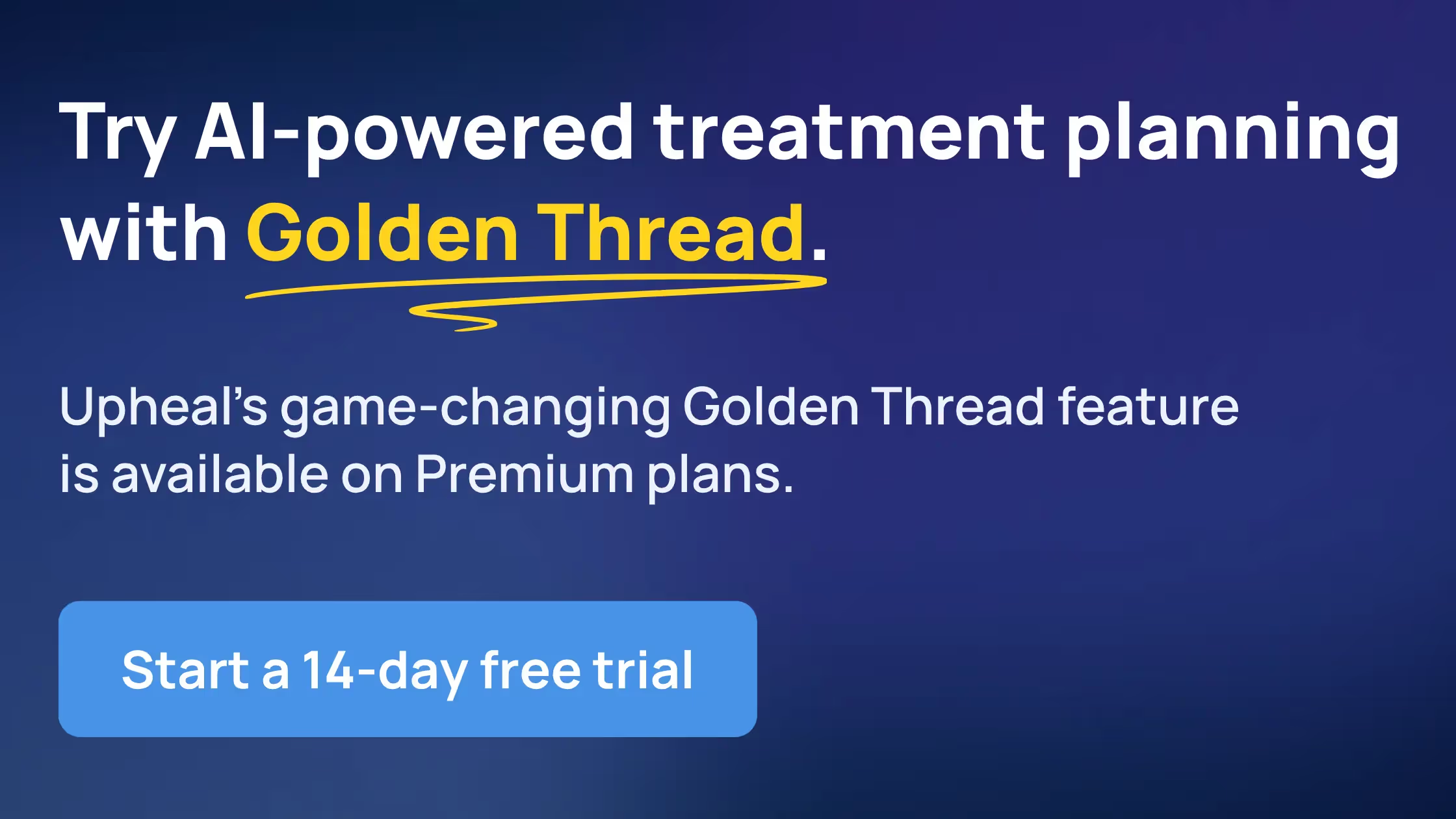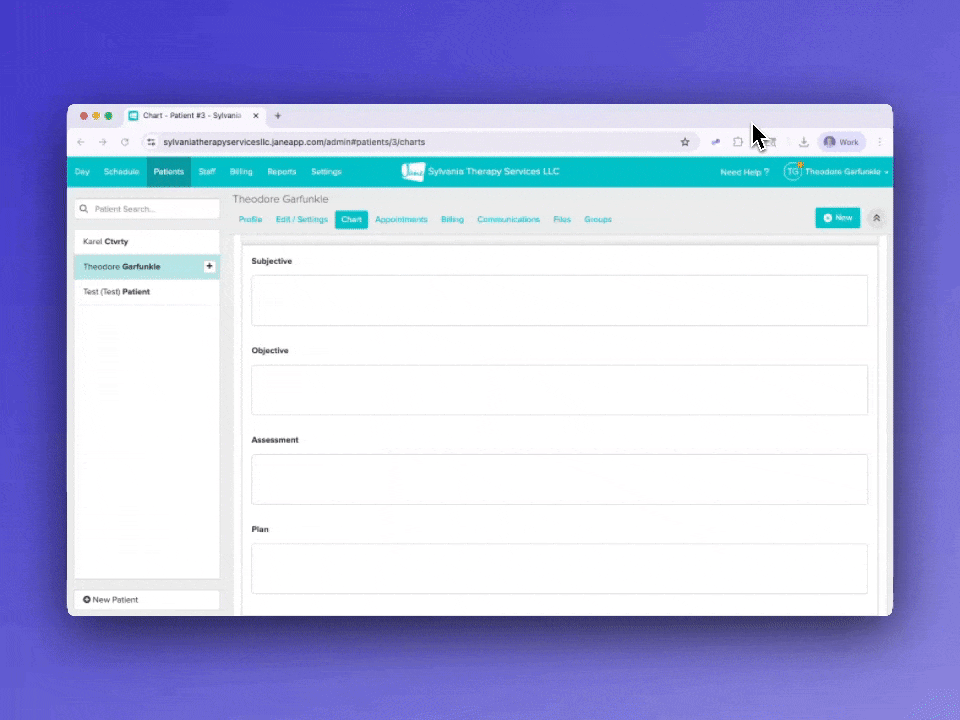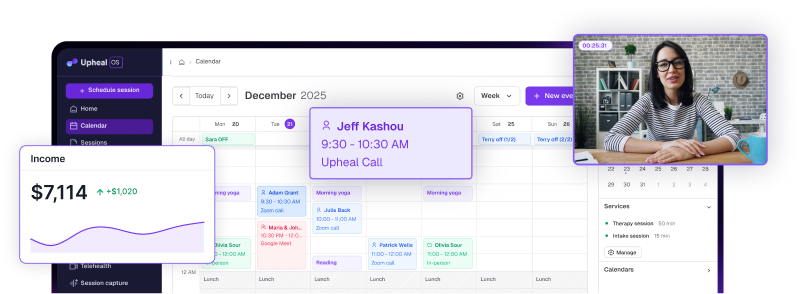Best AI for therapy notes: leading solutions for clinical documentation

The therapeutic profession stands at a critical juncture. Every day, AI documentation tools evolve — with or without your input. Mental health professionals who remain on the sidelines essentially surrender influence over technologies that will inevitably shape clinical practice.
You've witnessed the early iterations: generic medical scribes that miss therapeutic nuance, platforms that treat client confidentiality as an afterthought, systems designed by technologists who've never sat across from someone sharing their deepest struggles.
The question isn't whether AI will transform therapeutic documentation — it's whether practicing clinicians will guide that transformation.
Mental health professionals spend approximately 20-30% of their workweek managing therapy notes, treatment plans, and administrative tasks.
Meanwhile, AI systems are being trained to understand therapeutic language, clinical reasoning patterns, and intervention frameworks.
The clinicians actively testing and providing feedback on these systems help ensure they develop in ways that serve both professional needs and client welfare.
Early adoption by thoughtful practitioners creates better tools for everyone. When you evaluate AI documentation platforms, you're not just selecting software — you're participating in the evolution of clinical technology that respects therapeutic relationships while enhancing professional effectiveness.
Platform comparison overview
1. Upheal: best AI for therapy notes
Upheal was built specifically for mental health professionals who understand that documentation should enhance, not interrupt, therapeutic relationships. While other platforms treat clinical documentation as generic transcription, Upheal understands therapeutic nuance.
⭐️ What makes it exceptional:
- Unlimited AI-generated notes completely free, with premium features starting at $19/month
- Explicit opt-in consent required before any client data touches AI training models
- 95% accuracy real-time transcription that understands therapeutic language patterns
- Golden Thread treatment planning that creates cohesive clinical narratives across sessions
- Smart Sections enabling unlimited customization with your own AI prompts
- Advanced session analytics providing therapeutic insights and professional development feedback
- Eight-language support for culturally responsive care
Clinical impact is measurable: therapists report 73% reduction in documentation time while improving note quality and consistency. The platform's AI understands intervention terminology, clinical reasoning patterns, and therapeutic relationship dynamics that define authentic behavioral health documentation.
2. Clinical Notes AI: good for quick documentation
✅ Strengths: Clinical Notes AI emphasizes rapid note generation with unlimited documentation at competitive rates. The platform offers mental health-focused templates and straightforward dictation capabilities across behavioral health specialties.
⚠️ Challenges:
- At $60/month for unlimited access, Clinical Notes AI represents a significant investment without advanced therapeutic features.
- The platform lacks sophisticated privacy protections, using client data for AI training by default without explicit consent requirements.
- Missing are advanced customization options and therapeutic analytics that support clinical development.
3. Nabla: good for multi-specialty practices
✅ Strengths: Nabla extends beyond mental health into comprehensive medical documentation, offering broad healthcare application support with automated referral letter generation and multiple language capabilities.
⚠️ Challenges:
- The generalist medical approach dilutes effectiveness for therapeutic process documentation.
- Complex therapeutic interventions often lose essential clinical context within the platform's generalized healthcare framework.
- At $119/month, Nabla represents premium pricing without specialized behavioral health features.
4. TherapyNotes: good for comprehensive practice management
✅ Strengths: TherapyNotes with TherapyFuel provides comprehensive practice management including scheduling, billing, and AI-enhanced documentation within a single platform. The system offers traditional treatment planning tools with AI-generated client history summaries.
⚠️ Challenges:
- TherapyFuel adds $40/month per clinician to already substantial TherapyNotes subscription costs, making it expensive for solo practitioners.
- The AI features operate as add-ons rather than integrated solutions, limiting sophisticated customization options.
- Heavy reliance on existing infrastructure constrains innovative therapeutic analytics.
5. AutoNotes: good for basic automation
✅ Strengths: AutoNotes provides entry-level automated documentation at $25/month with simple transcription capabilities and basic template customization options.
⚠️ Challenges:
- Limited therapeutic context understanding affects clinical note authenticity and depth.
- The platform lacks sophisticated AI capabilities for complex case documentation and offers little to no transparency regarding data usage policies.
- Technical reliability issues, including session separation failures, create clinical documentation risks that compromise client confidentiality.
What to look for in AI therapy documentation platforms
🔒 Transparent data privacy practices
Leading platforms require explicit opt-in consent from both therapist and client before any session data touches AI training models. Transparent privacy practices protect therapeutic relationships while enabling technological advancement.
🧠 Purpose-built for therapeutic settings
Optimal solutions recognize mental health-specific language patterns, intervention types, and clinical reasoning structures unique to behavioral health practice. Generic medical scribes often miss therapeutic nuance essential for authentic documentation.
🎯 Integration of treatment plans
Advanced platforms seamlessly connect therapy notes with treatment plans, creating cohesive clinical narratives that support continuity of care and outcome measurement. This Golden Thread approach ensures individual sessions contribute meaningfully to larger therapeutic goals.

⚙️ Advanced AI customization
Therapeutic approaches vary significantly across modalities and client populations. Smart Sections and custom AI prompts allow therapists to teach their documentation system to capture exactly what matters in their practice — whether documenting EMDR phases, tracking dialectical behavior therapy skills, or monitoring family systems dynamics.
🤝 Integration with existing systems
Seamless compatibility with existing EHR systems and practice management platforms ensures comprehensive workflow continuity without technological disruption that creates additional administrative burden.

You should decide what the best tools is for your practice.
You can't determine if AI documentation works for your practice until you actually try it with real sessions and real clients.
Reading about features differs fundamentally from experiencing how AI captures your therapeutic style.
Upheal removes that barrier with unlimited AI-generated notes completely free. No trial periods, no credit card requirements, no limitations on note types. Generate therapy notes from session recordings, written summaries, or dictation — whatever fits your workflow.
This isn't about making a purchasing decision today. It's about discovering whether AI documentation can genuinely improve your practice without financial risk. Many therapists are surprised by how quickly they adapt to AI-assisted documentation and how much mental space it creates for client care.
Your voice matters in shaping these tools. Every session you document, every piece of feedback you provide, every customization you create helps train these systems to better understand therapeutic language and clinical reasoning.
You're not just using technology — you're helping evolve it into something that truly serves the profession.
Start with a single session. See how Upheal captures your clinical language and therapeutic interventions. If it enhances your practice, explore the advanced features. If it doesn't align with your workflow, you haven't invested anything except a few minutes of experimentation.
The future of therapeutic documentation is here, and it starts with clinicians like you actively participating in its development.










.avif)
